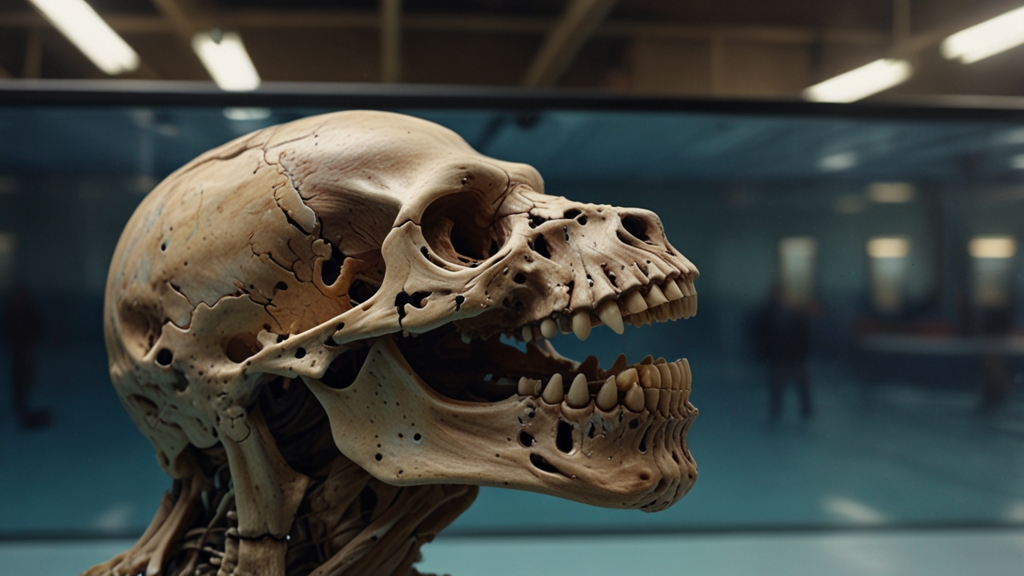From Gladiators to Popes: The Wild Stories of Rome's Past
Rome, often called the Eternal City, boasts a history that spans over two millennia. From its legendary founding by Romulus and Remus to its dominance as a mighty empire, and later becoming the epicenter of the Christian world, Rome's past is a tapestry of fascinating tales filled with triumphs, tragedies, and transformations. This article takes you on a journey through the wild stories of Rome, from gladiatorial games to papal intrigues.
The Gladiatorial Games: Blood and Sand
The Colosseum, an architectural marvel, stands as a testament to the grandeur and brutality of ancient Rome. Constructed in 70-80 AD, this amphitheater could hold up to 80,000 spectators, all craning their necks to witness the gladiatorial games. These games were not just mere entertainment; they were a display of power and control, a method to appease the masses and immortalize the might of the emperors.
"Ave, Imperator, morituri te salutant!" – "Hail, Emperor, those who are about to die salute you!" This was the gladiators' cry to the emperor, a chilling reminder of the stakes at play.
Gladiators were often slaves, prisoners of war, or condemned criminals. However, some of them chose the life of a gladiator voluntarily, seeking fame, fortune, or escape from poverty. These warriors trained extensively in special schools, honing their skills for combat. The blood and sand of the Colosseum thus bore witness to countless stories of courage, desperation, and inevitable death.
Fabled Founding: Romulus and Remus
Rome’s founding myth is as wild as it is poignant. According to legend, Rome was established by twins Romulus and Remus, who were abandoned as infants and suckled by a she-wolf. Romulus eventually killed Remus in a fit of rage, becoming the sole ruler and establishing the city that would become the eternal heart of one of history's greatest empires.
"And the walls of Rome were marked by Romulus’ plow, defining the sacred boundary of the new city, destined for unparalleled greatness."
This story of murder, divine intervention, and ultimate triumph sets the tone for the tumultuous and storied past of Rome.
From Republic to Empire: Political Intrigue and Power
Rome’s transition from a republic to an empire was marked by dramatic and often violent episodes. The assassination of Julius Caesar in 44 BC is one of history's most infamous acts of betrayal. As Caesar was infamously stabbed by members of the Senate, the wheels were set in motion for the rise of an empire under Augustus, Rome’s first emperor.
The legacy of Rome’s political drama includes tales of powerful rulers like Nero and Caligula, whose reigns were marked by excess and cruelty. Then came emperors like Trajan and Marcus Aurelius, who sought to embody justice and philosophical wisdom.
The Papal Revolution: Rome’s Sacred Transformation
With the fall of the Roman Empire came a shift from imperial grandeur to spiritual dominance. Rome became the heart of the Christian world, with the pope rising as a significant figure. The city transformed into a religious epicenter, where the spiritual and temporal powers often collided.
The papacy itself is fraught with wild stories. From Pope Alexander VI, infamous for his scandalous private life and political machinations, to the Great Schism, where multiple claimants to the papal throne threw Christendom into disarray, the history of the popes is as dramatic as that of the emperors before them.
"The papal conclave, shrouded in secrecy, conducted its solemn rituals within the Sistine Chapel, as cardinals sought divine guidance (and sometimes earthly schemes) to elect the new leader of the Catholic Church."
Over the centuries, Rome’s popes have wielded not just spiritual authority, but also immense political power, shaping the destiny of nations and peoples.
Conclusion: The Eternal City's Legacy
The tales of Rome, from its gladiatorial combats to its papal conclaves, present a city perpetually at the heart of history’s most pivotal moments. The legacy of Rome is not just in its monuments and ruins, but in the enduring stories of courage, ambition, and spirit that define its past. As you stroll through the ancient forums, under the shadow of St. Peter's Basilica, or past the imposing Colosseum, you are not just witnessing history — you are walking amidst the echoes of human drama that continue to reverberate through the ages.









